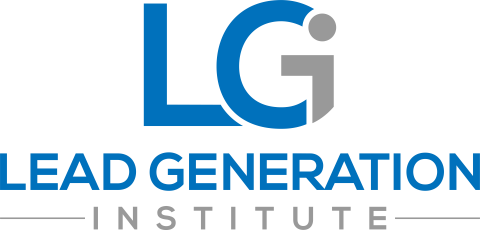With nearly three billion social media users around the globe, social selling is becoming more widespread than ever. Every B2B marketing or sales professional worth their salt has at least heard about social selling. It’s not social media marketing, nor is it social media advertising, yet it’s a technique that is equally as important for B2Bs and B2Cs alike. Every sales leader out there should start implementing it into their practice if they aren’t already.
Social selling will allow salespeople to target prospects with a laser focus, building rapport, and even replacing dreaded cold-calls to a large degree. Adding social selling into your funnel is not simply a welcomed addition for your B2B sales team, but a necessity going into 2020 and beyond.
What Is Social Selling?
Social selling is a process of using different social media channels to connect with and develop relationships with potential customers. Be it LinkedIn, Twitter, Facebook, or Instagram, social selling techniques include things like sharing relevant content, interacting with clients and potential customers, social listening, branding, and more.
Probably equally as important as explaining what social selling means, is to talk about what social selling isn’t. Social selling should not be confused with social marketing under any circumstances. For starters, this technique focuses on the sales teams, not on marketing professionals. Second, it’s about building meaningful relationships, not about bombarding strangers with unwanted messages.
The aim is not so much to gain access to new leads as it is about building relationships and listening for the right moment to join the conversation. In doing so, you present yourself as the solution to a problem, aiming to address the pressing needs and pain points of your prospects and looking to make their life easier.
The Benefits of Social Selling
B2B sales reps willing to put the time and effort into engaging with their target buyers on a regular basis stand a better chance of seeing their efforts pay off than those who do not. Even if there’s never a guarantee, research shows that top-performing salespeople who close over 50% more deals than their peers, consider social media crucial to their success. Some 72% of them have also outperformed their peers by using social media.
Furthermore, [bctt tweet=”sales teams that engage in social selling will see, on average, 18% better pipeline volume and 21% increased pipeline velocity.” username=”LeadGenInst”] It’s also important to note that social selling makes it much easier for sales reps to get referrals within their LinkedIn networks. This is particularly advantageous given the fact that over 84% of B2B buyers start the purchasing process after having been given a referral.
B2B Customers Are Already Engaged in Social Buying
Similar to the referral point made above, B2B buyers are also using social media to search for potential vendors. According to statistics, customers are, on average, 57% through the sales process by the time they ever engage with a sales professional. Others have that percentage point closer to 70%. Whatever the case, B2B customers are already researching and creating opinions about which potential vendors will best fit their needs way before they make the first contact.
Practicing social sales will help sales reps get involved earlier in their leads’ sales cycles. This means that they stand a better chance of defining the criteria that dictate the ideal solution and increase their likelihood of making a sale. Keep in mind that over half of B2B buyers use social media as a means of researching and assessing tools and technologies while making their final decision.
According to LinkedIn, some 76% of buyers are ready to start a social media conversation with potential vendors. Similarly, 62% will respond to salespeople who connect with them and share relevant insights regarding their business. By posting valuable and relevant content on social media on a regular basis, sales reps will also start branding themselves as thought leaders in their industry. The good news about this is that 92% of B2B buyers are willing to engage with those they consider to be thought leaders.
All in all, sales professionals will stand to gain by engaging in social selling, simply because their leads are already involved in social buying.
Social Selling Increases the Sales Volume and Quality
It’s a well-known fact that B2Bs have to work with a much smaller pool of potential customers than their B2C counterparts. This makes lead generation for B2B professionals that much more essential to their success. Given this, B2Bs have always had to resort to all sorts of tactics to generate more leads with varying degrees of success. Cold calling, for instance, though a necessity not that long ago, has since started showing limited results and a shrinking ROI.
Yet, in today’s day and age, various social tools help B2B sales reps “listen” to relevant conversations, allowing them to identify new leads that are already talking about the industry, business, competitors, or product. This technique, known as social listening, will allow you to get into the conversation at the perfect moment and provide your prospect with the right information when it’s most needed. In fact, social selling tools have helped 33% of B2B professionals increase their number of sales, and reduced the time spent on researching new contacts and accounts by 39%.
Building Rapport and Trust with Customers and Future Prospects
Over the past years, social media has become an almost invaluable resource of information for sales professionals. Prospects are actively sharing huge amounts of data concerning their wants, needs, and pain points on social media, making it an ideal environment forB2B sales teams. Having this information readily available will help reps ensure that the first point of contact is relevant, helpful, and personalized, which will drive deeper relationships with clients sooner along in the process.
It also helps sales reps build stronger professional networks through their social media channels, leading to more introductions to new sales prospects through mutual connections. This drives trust and rapport, two essential ingredients in every lasting relationship. In fact, over 87% of B2B buyers say that they have a more favorable impression of a sales rep who has been introduced via their professional network, which lies in stark contrast to the 4% good first impression of cold calling.
Takeaway
Social selling is a modern-day technique. It will provide your organization with multiple benefits and will help you grow your lead volume and quality. B2B companies that have not yet implemented it into their sales process are standing to lose, particularly since the majority of their competitors are already doing it. If you want to learn more about social selling best practices, subscribe to our newsletter and get the latest delivered to your inbox.




